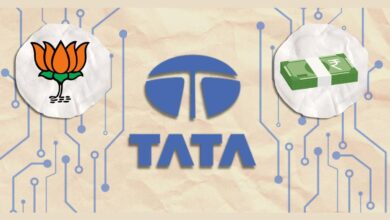In June, President Donald Trump signed an executive order temporarily suspending work visas for H-1B holders, which includes skilled workers like software developers.
Considering that 71% of workers in Silicon Valley and other tech hubs are international, the order poses a number of logistical and business challenges for startups.
While nearshoring was an option before the virus struck, the urgency to nearshore due to the visa ban, combined with the remote revolution taking place, has meant companies are reconsidering it as a solution. As a result, the suspension presents an opportunity for companies to bring on board software development capabilities from abroad.
Nearshoring is a way to hire teams in locations that share similar time zones and are easily accessible. Nearshoring also enables U.S. companies to utilize services from close locations, where the talent, working conditions, and salaries are more favorable. In fact, it can save businesses up to 80% on costs, while providing employees with flexibility, autonomy and better career development pathways.
Not only is nearshoring a pragmatic response to the visa ban, it has the potential to be a long-term hiring alternative for businesses. Here’s how:
Laying the groundwork for remote teams
Amid the pandemic, demand for developers has remained high, no doubt due to companies needing teams to build, maintain and optimize digital platforms as they transition to online services. The visa ban means that businesses in foreign markets can help meet such demand, particularly as tech talent from other countries comes with a fresh, different skill set that empowers companies to solve problems in new ways.
In the past, moving to the U.S. and living the American Dream oriented many foreign businesses’ professional paths. However, the trend has changed. The appeal of the United States was slipping prior to the virus — it ranked 46th out of 66 for “perceived friendliest to expats” — and post-COVID-19 may be even more detrimental.
In a more connected world, businesses and individuals can reap the benefits of U.S. opportunities — top technology stack, access to exciting companies and world-class research — without having to actually live in the country. In this respect, nearshoring means foreign teams have the best of both worlds: the comfort of home and ties to an international powerhouse.
The remote shift is demonstrating that teams can function well at a distance; some studies have even revealed that employee productivity and happiness benefit from remote work. In the global remote shift, nearshoring is being seen as an accepted and advantageous model. Companies that opt to nearshore in response to the visa ban can take advantage of the changing tides and use this time to lay the groundwork for best practices within remote teams. For instance, by devising policies for things like communication, tracking progress, vacation and development plans according to the new conditions and specific mission statements. As a result, businesses can seamlessly build professional partnerships.
Another advantage of nearshoring is that the flexible teams contribute to a ready-to-scale model for startups. By having development partners located in different countries, companies can network on a wider level and grow faster among local markets. Rather than start from scratch when expanding, nearshoring gives companies a presence — no matter how small — across regions, which can later be built upon.
Attracting fresh investment
Similar to having a readiness to scale, the H-1B visa suspension positions nearshoring as a viable way to strategically partner with foreign development studios. In contrast to offshoring, nearshored businesses are often more vested in the projects they work on because they share time zones and are thus able to work more closely and with greater agility. Within startups, such agility is essential to continuously test, iterate and pivot products or services. Outsourced teams often have defined outputs to achieve, while freelancers are split across several projects, so aren’t completely ingrained in companies’ visions.
With nearshoring, startups can target partners that have experience in a particular area of business or with a specific tech feature and accelerate their time to market. Instead of building systems from zero, they can launch into version 2.0 because the wider choice of experts means there’s a higher chance of partnering with teams who already understand how the industry functions. Nearshore partners also have vast knowledge across industrial fields at a level that is impossible for direct hires to have. Companies therefore don’t have to tackle the difficulty of curating a great team, because nearshore partners are an already solid pairing.
When it comes to funding, this synchronicity, agility and preparedness indicates that a startup has momentum. For investors, nearshoring shows that the company has on-the-ground insights about potential markets to disrupt, and that the business model can thrive using remote teams. As the world braces itself to go fully digital, startups that have already adopted remote processes that catalyze growth will no doubt catch the attention of investors.
Promoting greater diversity in teams
Latin America is a clear choice for U.S. businesses looking to nearshore. The region’s proximity, increasing internet penetration, and impressive number of highly skilled developers are all a significant draw.
It’s also worth noting that diversity plays a core role in nearshoring. Currently within tech, Hispanic workers are noticeably underrepresented, making up a mere 16.7% of jobs. Despite the physical distance, nearshoring in Latin America can bring people from different social and economic backgrounds into companies, boosting their visibility in industries as a whole, and setting a firm foundation for equality.
Studies also show that diversity influences creativity among teams, as well as increases company revenue.
Moreover, nearshoring accelerates diversity in a manner that isn’t disruptive. Foreign team members don’t have to sacrifice their home, friends and family to further their professional career. Relocating to the U.S. can be daunting for people who haven’t previously worked abroad, especially when factoring the change in living costs and new culture norms. Nearshoring means teams can work from locations they’re familiar with, so need less time to get up to speed on business processes. They additionally have the emotional support of their social circles nearby, which in the current climate is important for employees’ personal and professional wellbeing.
Leveraging the right partnership
Research is key to successfully find a nearshore company, and startups don’t always have the time and resources to conduct an in-depth analysis of locations and their ecosystems. The most practical manner to nearshore the right talent is with a nearshoring partner that is responsible for scouting, vetting and communicating with foreign developers.
To find an appropriate partner, ensure that they have previous experience in your industry and positive testimonials from startups in your location. They should also have a clear presence in the regions they operate in; try checking online for their press releases, events they sponsor and general content that validates they are active and respected.
Once you’ve found an appropriate nearshore partner, rely on them to know what teams in your preferred locations need in terms of culture. Nearshore partners will essentially be your development partner — you can leverage them to be your whole Research and Development department. They can guide you on the tech side of your business, advise you on the right team at the right time, give you direction on stack and methodology, and curate the right environment for the team to be productive. In contrast, hiring freelancers comes with risks because you won’t necessarily know the specific needs of the location they’re in. Be aware — if there’s a cultural disconnect, you risk not finding a partner, but a vendor that’s buying into a superficial version of your startup, as opposed to your real startup vision.
Once you’ve settled on a well-fitting nearshoring partner, ensure you have detailed contracts with all team members, as well as nondisclosure agreements. Nearshoring requires a level of mutual trust, however, at such an early stage of your company’s lifecycle, you need to know that your processes and data will not be revealed to competitors. Check that your nearshore partner’s financial status is secure and sufficient for a long-term model. Correspondingly, service level agreements will set the parameters for job responsibilities and deliverables. After all the formalities are covered, you can focus on curating fruitful, long-term relationships.
Acclimatizing in the new normal
The COVID-19 crisis has made recruitment a remote-dominated sphere. Traditional modes of hiring are being reassessed, and companies are realizing that teams don’t have to be in an office to be productive. In fact, not having to cover visa and administration fees for foreign employees is much more cost-effective for companies.
As time passes and businesses develop habits best-suited to remote work, nearshoring will become increasingly popular. People are prioritizing joining teams where their career development, well-being and ethics are protected, all of which nearshoring can offer with the added benefit of not completely upheaving workers’ lives.
Startups who embrace nearshoring early on could find themselves competing with top tech firms that struggle because of recruiting limitations. With the end of the pandemic unknown, and thus no hard deadline for the visa ban, tech companies have to look at alternative modes of building teams. Startups have the advantage of revising their remote product development approach without disturbing workflows too severely. They are also known for pioneering fairer and more innovative workplaces that are enticing for a broader scope of employees.
Nearshoring is mutually beneficial because developers don’t have to give up their culture for a great employment opportunity, and businesses can reap the benefits of diversification. Ultimately, the H-1B visa suspension could stimulate true globalization in tech, where companies can achieve their best performance using global resources.
Source: TechCrunch




